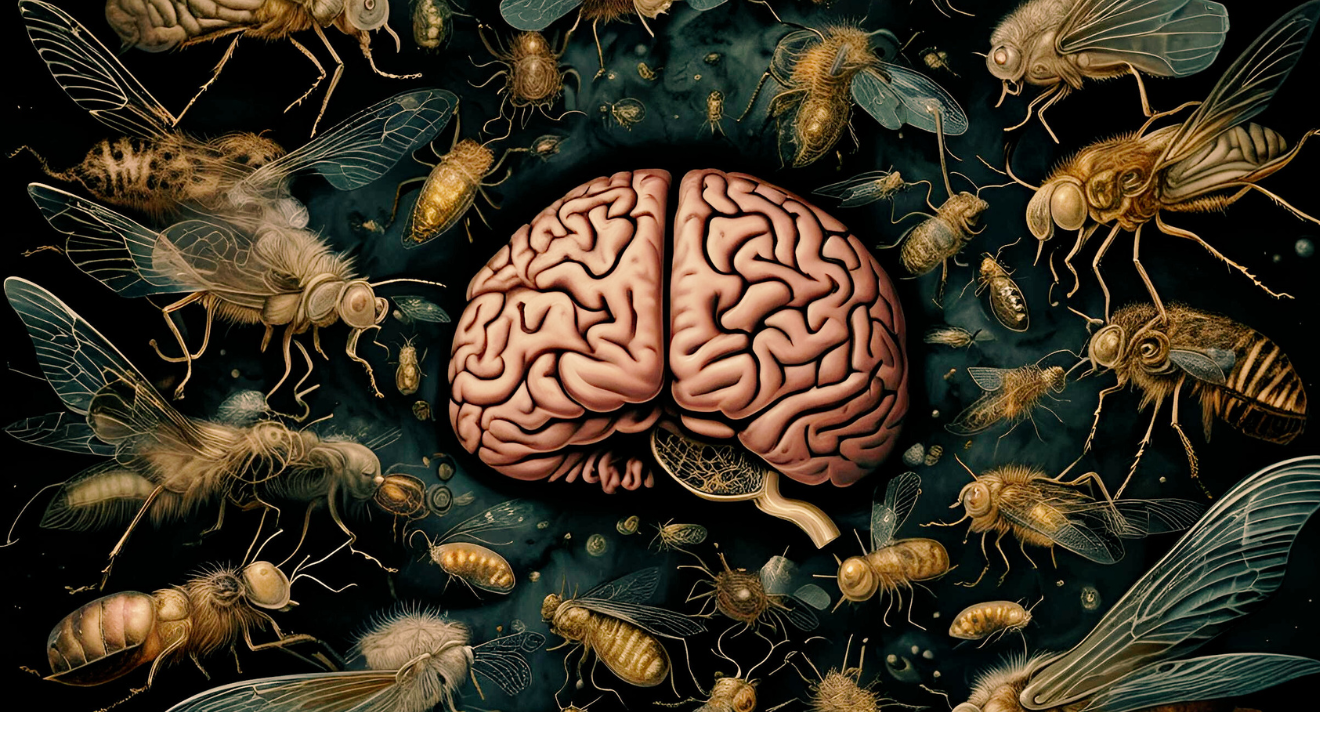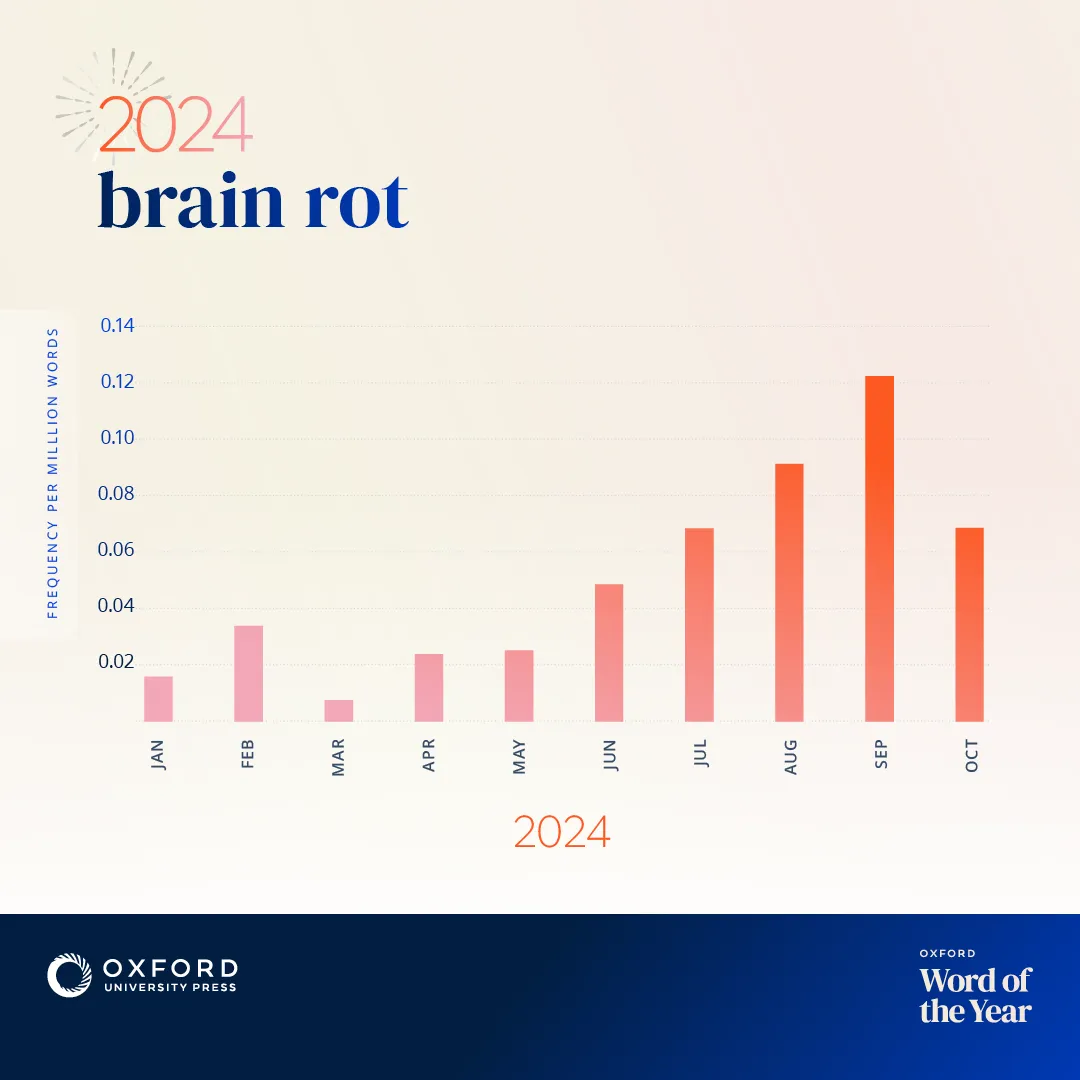Brain rot is the word of the year. Meh.
Tell me something new.

Brain rot has won Oxford's Word of the Year title for 2024. Here's how lexicographers define the term:
"The supposed deterioration of a person’s mental or intellectual state, especially viewed as the result of overconsumption of material (now particularly online content) considered to be trivial or unchallenging. Also: something characterised as likely to lead to such deterioration”.
According to Oxford, the usage of 'brain rot' jumped 230% between 2023 and 2024. In a release, the organisation said it was 'pleased' to announce the news – a strange thing to say considering the distinct unpleasantness oozing from the winning word. (More so when you contrast it with last year's dandy winner: rizz, internet slang for 'a person's ability to attract others through style, charm, or attractiveness'.)

Brain rot is enjoying heightened relevance in the era of Reels and Shorts, but its origin dates back to the mid-19th century. Its first recorded usage was in Henry David Thoreau’s book Walden dedicated to the author's experiences of living a simple lifestyle in the natural world. Thoreau called out society for devaluing complex ideas in favour of simple ones, indicating a mental and intellectual decline: “While England endeavours to cure the potato rot, will not any endeavour to cure the brain-rot – which prevails so much more widely and fatally?”
While nerds the world over wait for the word of the year to be unveiled so they can luxuriate in trivia like this, I have to say that I found this year's winning entry a bit meh. So my brain is rotting because I am watching too many Skibidi Toilet videos, in which human-headed commodes fight humanoids that have electronic devices in place of heads? Tell me something new.
From Oxford's shortlist for the year, I'd rather choose romantasy – a genre combining romance and fantasy. Now wouldn't that have made for a delightful winner in these times?
Brain rot evokes a truism of contemporary culture – screen addiction is melting your brain. Newport Institute, which runs 'evidence-based healing centers dedicated to transforming the lives of young adults and their families' in the US, cites research showing that spending unhealthy amounts of time on the internet can damage attention and memory, which may be visible in changes in the brain’s grey matter. Repeated scrolling can short circuit the brain’s capacity to encode and retain information (it can also give you horrible carpal tunnel syndrome, which is currently limiting my typing speed to 10 words per minute).
In young adults, the constant comparison with the shiny, happy, social media-friendly version of the lives of others, and the race to garner more likes and follows than your peers, can erode self-worth and lead to a spike in stress, anxiety, and depression.
The antidotes Newport Institute suggests are familiar too: limit screen time, pursue non-digital interests and activities, and connect with people in the real world.
When I first discovered brain rot, it reminded me of a cousin coinage that had gone viral on TikTok earlier in the year – bed rotting, an anti-hustle culture self-care hack where you stay in bed for days, even entire weekends. It's a darling trend among Generation Z, and it's easy to see how it could easily be used as another stick to beat 'em 'snowflakes' with.





